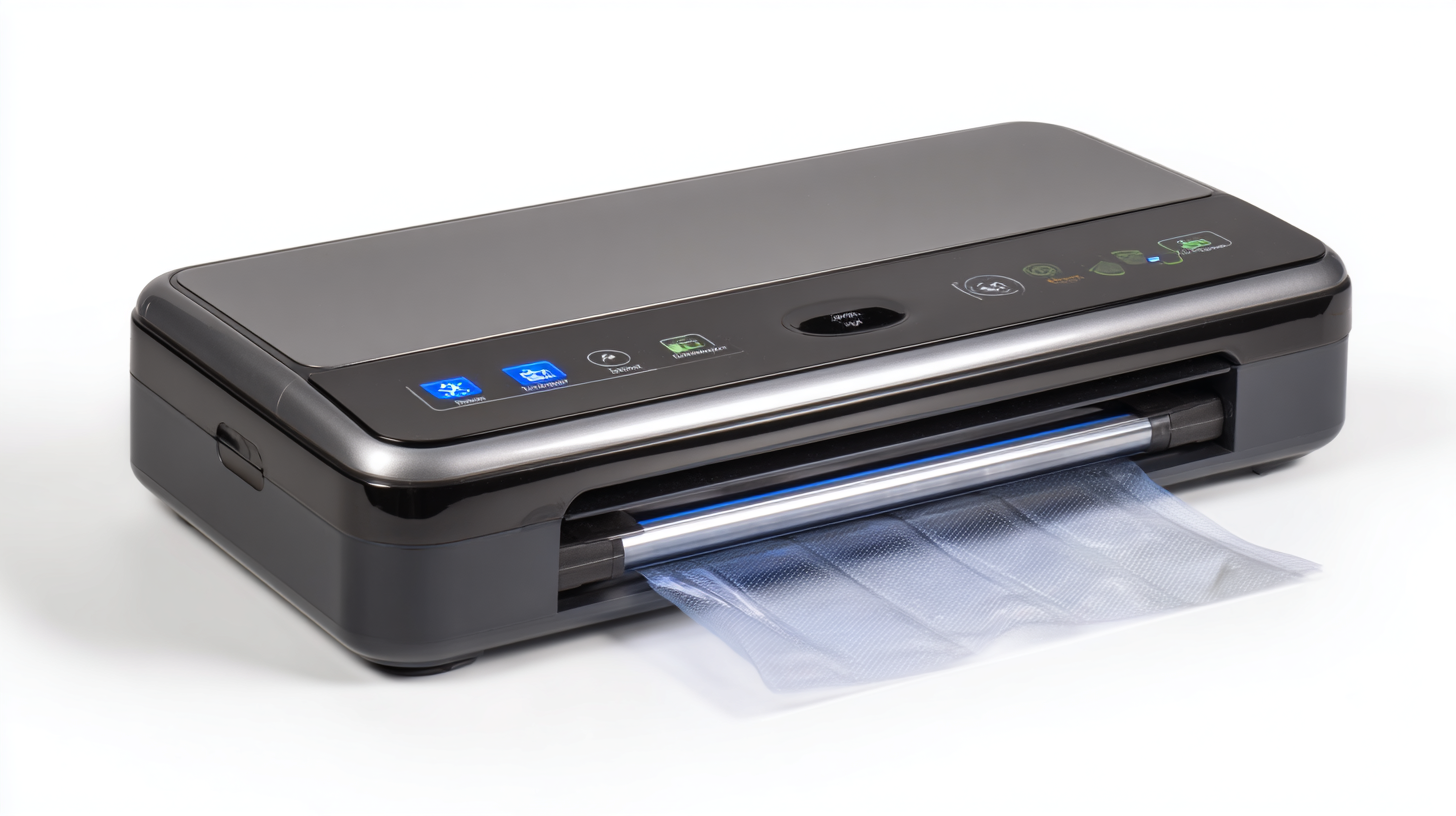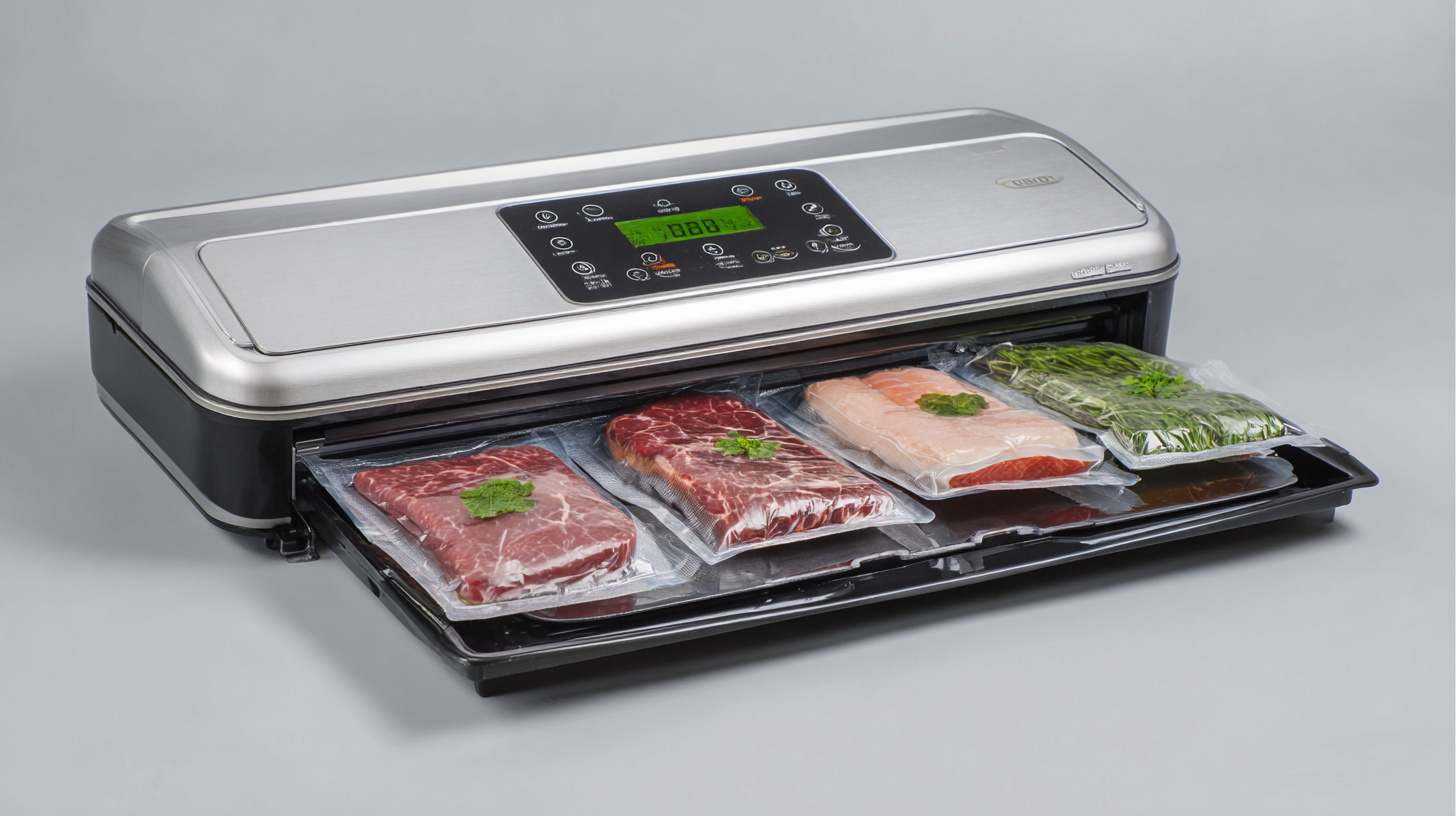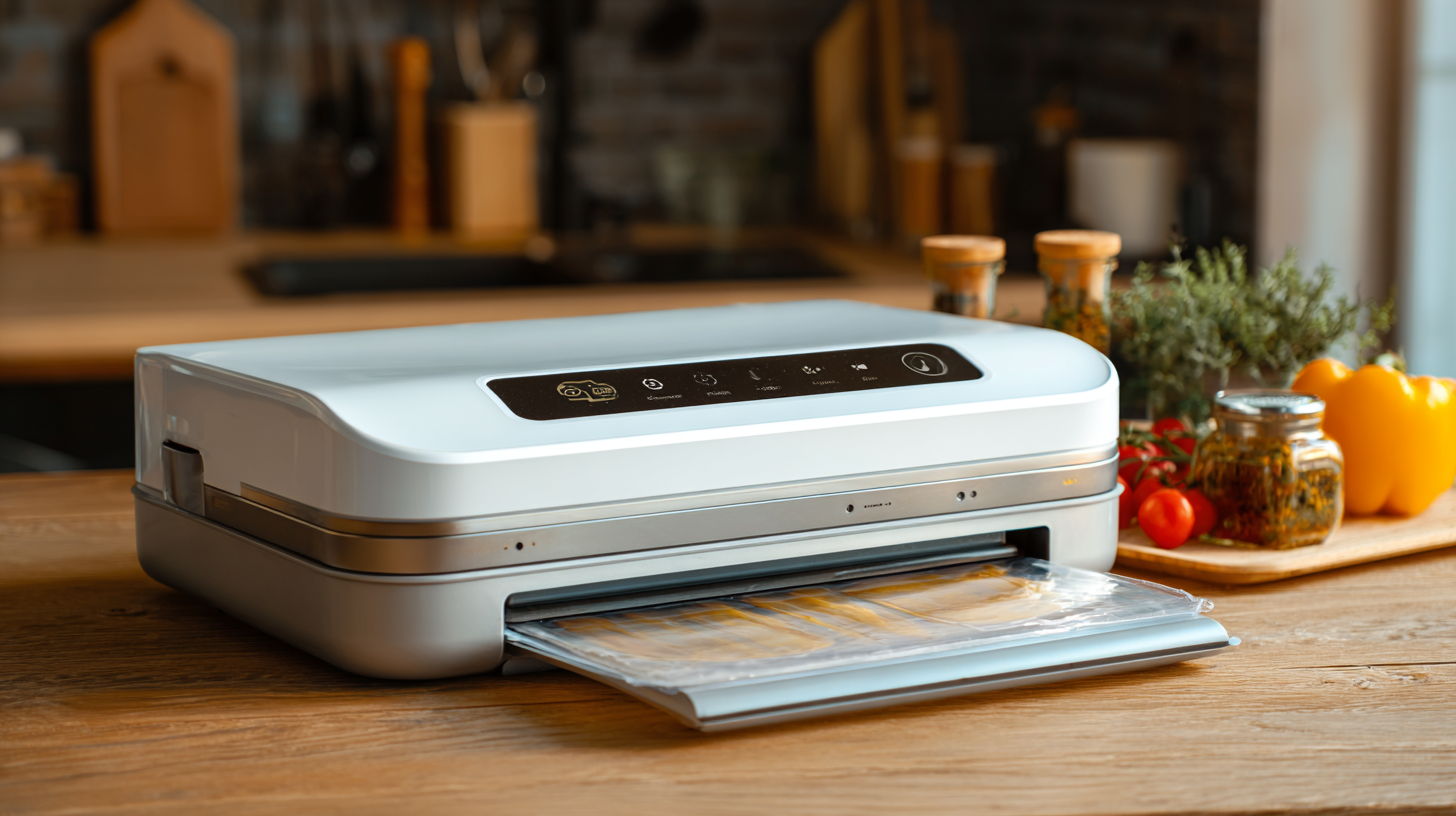About Us | Blog | FAQs | Tips/Troubleshoot | Contact Us | Machine Manuals | Demo Videos
7 Essential Certifications for Importing the Best Vacuum Food Sealer Machines Worldwide
As the demand for preserving food freshness and minimizing waste continues to rise, the importance of high-quality vacuum food sealer machines has become increasingly evident. According to a recent report by Grand View Research, the global vacuum packaging market is projected to reach USD 38.01 billion by 2025, growing at a CAGR of 5.5%. This surge is largely driven by the food and beverage industry’s rising need for effective preservation methods and the growing consumer awareness regarding food safety and sustainability. China has established itself as a leading producer of vacuum food sealer machines, delivering reliable products that maintain consistent quality. As such, understanding essential certifications for these machines is vital for importers seeking to navigate the complexities of international standards and ensure they are getting the best products for their markets. In this article, we will explore seven crucial certifications that can help importers identify the most trustworthy vacuum food sealer machines available worldwide.

Table of Contents
[Hide]
Essential Safety Certifications for Vacuum Food Sealers
When considering the purchase of vacuum food sealers, it's crucial to understand the importance of
safety certifications. These certifications ensure that the devices adhere to strict safety standards,
thereby protecting consumers from potential harm. One key certification is UL (Underwriters Laboratories), which tests products
for safety and performance. Products with UL certification have undergone rigorous testing and are deemed safe for household use.
Another important certification is CE marking, which indicates compliance with European safety standards. This certification ensures
that the vacuum food sealers are safe to use in the European market, covering various safety aspects, including electrical safety, electromagnetic
compatibility, and health protection. Additionally, NSF certification is vital for those concerned about food safety. It confirms that
the materials used in manufacturing the sealers are non-toxic and safe for food contact. By prioritizing these essential safety certifications,
consumers can confidently choose vacuum food sealers that meet stringent health and safety requirements, ultimately ensuring a safer food
storage solution.
Quality Assurance Certifications that Matter
When considering the best vacuum food sealer machines for importing,
quality assurance certifications
play a crucial role in ensuring product reliability and safety. These certifications not only validate the performance of the machines but also assure consumers that they meet stringent industry standards.
Among the most critical certifications are UL
(Underwriters Laboratories) and CE
(Conformité Européenne), which indicate compliance with safety regulations in North America and Europe, respectively.
Importers must prioritize machines that carry these certifications to mitigate risks and enhance consumer trust.
Additionally, certifications such as ISO 9001
and ISO 13485 reflect a manufacturer’s commitment to quality management and production standards.
ISO 9001 ensures a consistent quality assurance process, while ISO 13485 focuses specifically on medical devices, which can also be relevant for vacuum sealers used in preserving food for health-conscious consumers.
By opting for machines that hold these key certifications, importers can be confident in the quality and effectiveness of the products they bring to market, thus ensuring a competitive edge in an increasingly quality-driven consumer landscape.
Environmental Impact Certifications for Sustainable Practices
When it comes to vacuum food sealers, the importance of environmental impact certifications cannot be overstated. Consumers are becoming increasingly aware of the sustainability practices of the companies they support. As a result, certifications such as Energy Star, Green Seal, and ISO 14001 have gained prominence in the market. These certifications not only signify that products are efficient and environmentally friendly but also reassure customers that the manufacturers prioritize sustainable practices in their operations. By choosing vacuum food sealers that carry these certifications, consumers can significantly reduce their ecological footprint while preserving food for longer periods.

Additionally, businesses involved in importing vacuum food sealers should be aware of the growing demand for sustainable products. Eco-conscious consumers are more likely to purchase items that align with their values, which means that importing machines equipped with notable environmental certifications can provide a competitive edge in the market. Furthermore, sustainable practices often result in cost savings through improved efficiency and reduced waste, benefiting both the environment and the bottom line. By prioritizing environmental impact certifications, importers can contribute to a healthier planet while meeting consumer expectations for responsible shopping.
Regional Compliance Standards for Food Packaging Equipment
When importing vacuum food sealer machines, adhering to regional compliance standards is crucial for ensuring safety, quality, and marketability. Each region has specific regulations that govern food packaging equipment to protect consumers and maintain industry integrity. For instance, in the European Union, food packaging must comply with regulations such as the Food Contact Materials (FCM) directive, which ensures that materials do not transfer harmful substances to food.
In North America, importers must be aware of the Food and Drug Administration (FDA) guidelines and the Institute of Food Technologists (IFT) recommendations regarding food safety and equipment standards. Compliance with these regulations not only minimizes legal risks but also enhances consumer trust in the products. Familiarity with the certifications like UL (Underwriters Laboratories) or NSF (National Sanitation Foundation) can also give a competitive edge, as these certifications appeal to safety-conscious consumers who prioritize quality in their food storage solutions. Navigating these compliance standards is essential for successfully importing vacuum food sealers in today's global marketplace.
Compliance Certifications for Vacuum Food Sealers
This bar chart illustrates the distribution of essential certifications for importing vacuum food sealer machines across different regions. Proper certifications ensure compliance with regional standards for food packaging equipment.
Performance Certifications to Evaluate Efficiency and Reliability
When evaluating vacuum food sealers for import, performance certifications are crucial to ensure that you're investing in machinery that provides both efficiency and reliability. These certifications serve as benchmarks, helping buyers to assess the operational capabilities of various models. For instance, ISO certifications can indicate the quality management processes in place, while energy efficiency labels can guide consumers towards machines that optimize power usage—an increasingly important factor in today's eco-conscious market.


